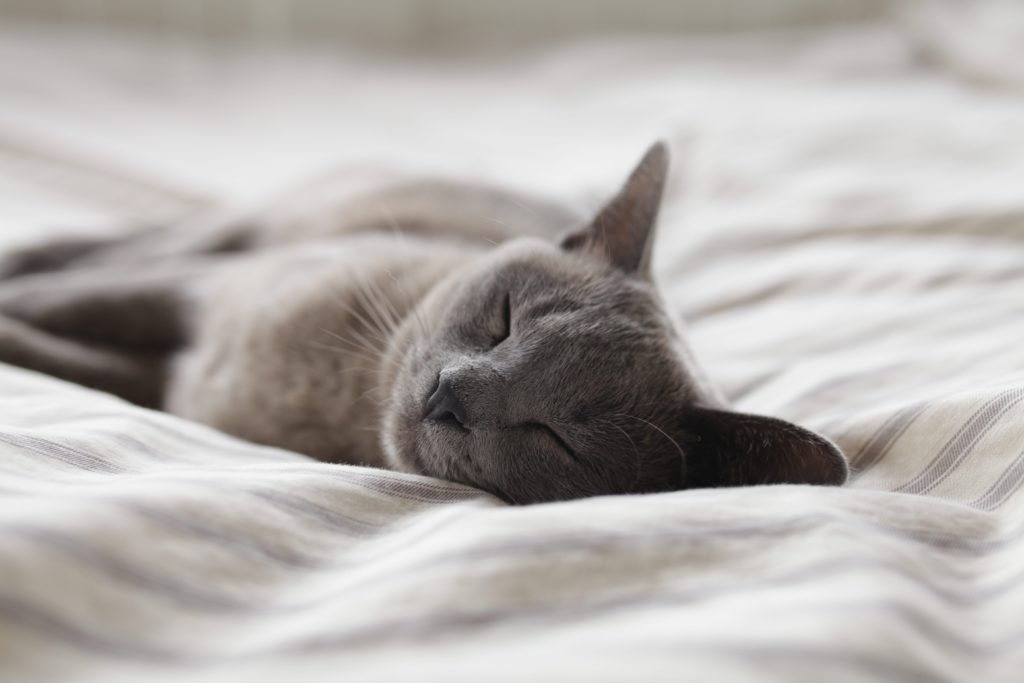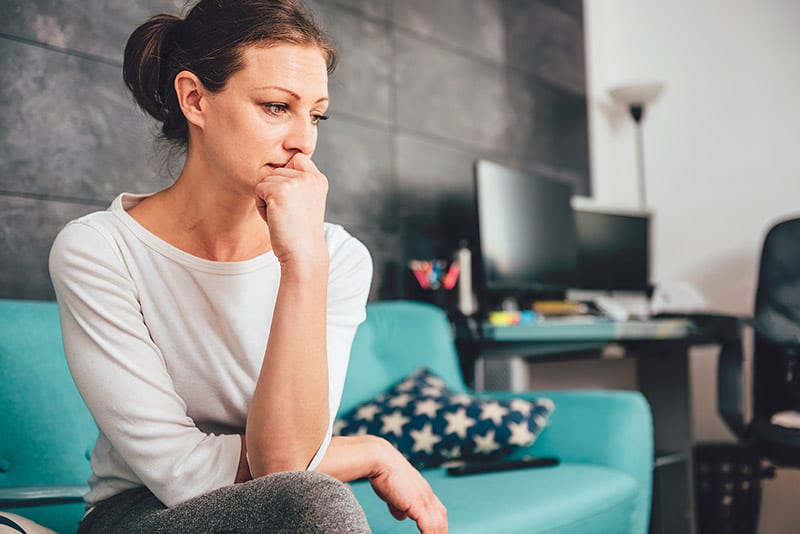Sleep away Anxiety/Depression/Improve Memory and more health benefits.
Be smarter than the majority of people! Neuroscientists predict that 40 to 50% of people will “lose their mind” by age eighty-five!
Let’s make our commitment for 2023 to have a good quality of sleep! Why?
Like food, sleep can be your best medicine! How? Keeping your brain balanced is what a good night’s sleep does.
If a sleep goal is not for you, look at last year’s January Newsletter to learn how to evaluate the past year and create clear goals for this new year!
 How come good sleepers enjoy a balanced emotional brain, and wakeful sleepers do not?
How come good sleepers enjoy a balanced emotional brain, and wakeful sleepers do not?
Sleep away ANXIETY/STRESS AND DEPRESSION!
Sleep scientists call stress the “anti-sleep virus”!
Doctors have noticed that a poor night’s sleep leads to emotional instability the following day! Yes, we are more likely to “fly off the handle”, become angry, and overact to life’s little setbacks when our quality of sleep is of poor quality!
How does good sleep lead to good moods?
When you are asleep, the brain releases more serotonin, the happy hormone, along with dopamine, the pleasure hormone.
When you don’t get enough sleep, or when the sleep you get is poor quality and interrupted, your brain isn’t able to make these natural antidepressants. When you wake up you need to feel refreshed, if not your sleep would need to improve.
How does good sleep lead to a better memory?
Some of the “medicine” your brain makes while asleep is a kind of “memory medicine”, which is why forgetfulness is one of the most noticeable problems from lack of sleep.
Some events, memories, and information you want to remember, and others you want to forget. Sleep facilitates both! We have learned that trashing toxic thoughts is at the top of the list for think-changing your brain, sleep is especially important for treating mood disorders!
Doctors say: sleeping well, and detoxing, prevents Alzheimer’s!
During sleep, your brain cleans the garbage, literally washing away neurotoxins. But what is even more fascinating is that, during deep sleep, your glymphatic system widens.
Imagine a street, getting wider at night to allow more garbage trucks to clean up the daily mess! Less deep sleep means less removal of waste products, more storage of waste products, and poorer brain health.
MORE HEALTH BENEFITS OF SLEEP
Sleep better, leak less. Not your bladder – the blood-brain barrier, which protects your vulnerable brain tissue from toxins.
Enjoy heartfelt sleep. Sleep puts the brakes on stress in the brain and it also puts the brakes on how stress affects the heart!
Sleep well, and stay lean. The higher levels of the stress hormone, cortisol, caused by a poor night’s sleep appear to cause gut upsets and imbalance ion and your gut bugs. As a result, you tend to be more hungry and less satisfied, so you eat more the next day.
Sleep well, and boost your immune system. You tend to sleep more when you’re sick because deep sleep strengthens your immune system to help you heal. On the opposite end when you’re deprived of sleep, your immune system response is weakened! The sounder you sleep, the more powerful your immune system fights cancer say, doctors.
Sleep can even delay skin aging!
Deep sleep and dream sleep! What does your brain do?
We need the following two stages of sleep for the brain to do its smart work. The deep stage of sleep prevails during the first half of the night, dream sleep prevails during the second half of the night.
Deep sleep. During deep sleep, your brain solves your previous day’s problem. Imagine you have a problem, but your brain is so cluttered or scattered with daytime noise that you “cannot think straight”. In deep sleep, when your brain kicks out the clutter, it allows the pieces of the puzzle to fit together! Isn’t it amazing that you go to bed with a problem, and you wake up with the solution?
Dream sleep. While deep sleep focuses on solving “intellectual” problems, dreams help heal “emotional” problems. Sleep scientists call dream sleep “overnight therapy”.
This stage of sleep is the most de-stressing period of the day. During this stage of sleep when your stress hormones are lowest, and your brain is truly enjoying stressless sleep.
Your sleep-stage pharmacy rf. William Sears, M.D,
Deep sleep:
- Lower heart rate
- Lower blood pressure
- Better immune system
- Stable blood sugar
- Lower inflammation
Dream Sleep:
- Trashed toxic thoughts
- Lower stress hormones
What are the 7 rules for a good night’s sleep
We would recommend you formulate your sleep recipe because a night’s sleep is as individual as your day. Below are some recommendations
- When to Eat. For most smart sleepers the earlier you eat, the better you sleep. Finish dinner at least 3 hours before bedtime
- Movement. Researchers have found that both your quantity and quality of sleep are better the more active you are during the day. However, it’s best not to exercise vigorously within three hours before bedtime.
Since the brain is a high user of oxygen, any habit that improves the delivery of oxygen and blood supply to the brain is smart.
- Think it. Happy thoughts promote happy sleep. “Don’t worry be happy” has a huge effect. As you shut your eyes you shut your mind. Recite a prayer, meditate, your favorite poem, or replay a happy scene from that day or the past, count your blessings! An idea for happy thoughts? Talk or think about what you want to dream about. This will help you calm down and fall asleep to happy thoughts!
- Set it. Notice your sleep/awake clock is naturally set to sleep when it’s dark, between 9 and 11 PM, when the two sleep prompts, melatonin and adenosine are the highest. Melatonin begins its neurochemical nagging around dusk or 6 PM, peaks between 10 PM and 4 AM (earlier in infants, toddlers, and seniors, later in teens), and reaches its low point around sunrise.
Our tired adult brains can also be programmed to drift off to sleep better following a set balance routine.
Avoid alarms that mistakenly tell your body “Emergency out there, run for your life!”. You’re already stressed and you’re not even out of bed! You may be surprised to discover after you master your sleep recipe, that most mornings you naturally awaken around the same time.
“Stay and stew” is bad for you! Start your day with good thoughts, don’t start your day in bed and dwell on the problems you may face during the day or lament the stresses of the previous day.
Drink when you wake up, and soon after awakening, down two to three glasses of water.
- Feel it/Obey it. The two neurochemical sleep nags, melatonin, and adenosine will tell you when to go to sleep. Listen to them, don’t fight sleep! And journal your sleep recipe.
- Dim it. Our brains do not sleep well when lit up with high doses of artificial light in those golden few hours before bedtime. In other words, the more artificial and lighter the light, the later the melatonin release. The brighter your nightlife, the shorter your sleep life!
Remember, the older you get, the darker your bedroom needs to be!
Get the LED out. Like the modern “food processing” that enables us to eat more cheaply, but makes medical care more costly, this type of artificial lighting could be more expensive for the brain. The light wavelength of blue LEDs, as they are called, particularly dials down melatonin release.
Screen out. The absolute worst time of the day to be looking at artificial light is the evening. Studies have shown that using electronics with blue LED light within two hours before bedtime reduced melatonin by more than 20 percent. Sleep science has known for more than twenty years that screen time before bedtime not only shortens sleep hours but also disrupts sleep quality. If you must indulge in screen time before bedtime, especially if you have an LED screen, wear blue-light blocker glasses, which can delay the melatonin suppression effect of bright lights.
LED light within two hours before bedtime reduced melatonin by more than 20 percent. Sleep science has known for more than twenty years that screen time before bedtime not only shortens sleep hours but also disrupts sleep quality. If you must indulge in screen time before bedtime, especially if you have an LED screen, wear blue-light blocker glasses, which can delay the melatonin suppression effect of bright lights.
To read or not to read before bedtime. Depends on what you read, and how the words you read are lit! An interesting study found that volunteers who read a book on an electronic tablet for several hours before bed had 50 percent delayed melatonin release compared with those who read a print book before bed. Electronic reading delayed melatonin release for up to three hours, and e-book readers took longer to fall asleep.
- Cool it. The cooler your sleep sanctuary, the sounder you sleep. For most people, a temperature between 60 F and 68 F is the best
Ease yourself to sleep. Do not “try hard” to go to sleep. Most sleepers don’t quickly “fall” asleep. Instead, they gradually slip into sleep over the course of ten to twenty minutes.
If you are still a poor sleeper, come to see us! Our programs have helped thousands of people’s brains learn or re-learn how to sleep well, with good quality deep sleep, and even remember their dreams!
If you want to read more on this subject, we recommend you read the book “The Healthy Brain Book”. An all-ages guide to a calmer, happier, sharper you! By William Sears, MD, and Vincent M. Fortanasce, MD.
HAPPY NEW YEAR 2023!
We love it when you come to see us, we are here to help!
Dr. Danielle, Marie-Laure, and their team





